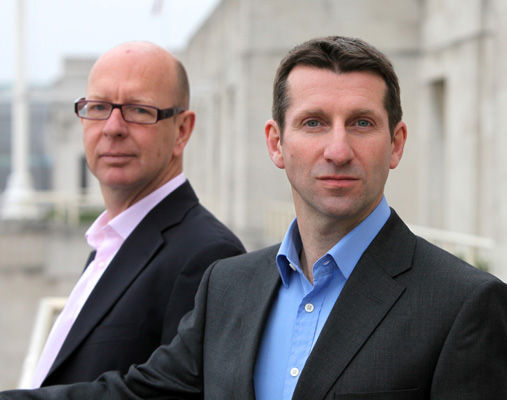
Stuart Crainer and Des Dearlove
There comes a point in any working life when you begin to consider the point of it all. Why do you spend more hours than appear sensible fulfilling a particular task? Why aren’t you famous/rich/happy/powerful or however you measure success? We had that moment with the Thinkers50 a few years ago.
We initially had the idea of ranking the world’s leading management thinkers in 2001. People liked it. The ranking was covered by the media worldwide and each time we produced it, the Thinkers50 became better known and more influential. It made the front page of The Times of India, the Harvard Business Review featured it, and we began developing the Thinkers50 in publishing and for events.
But there was still something missing.
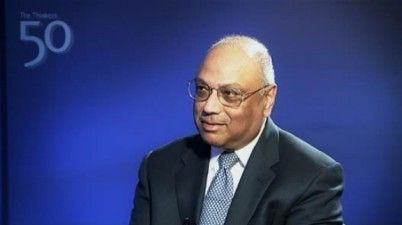
And then we filmed some interviews and spent time with CK Prahalad. CK had topped the ranking and was at the very top of his game. He was an intellectual with charisma and a conscience. He wanted to make the world a better place.
We realised then that the ideas and thinkers we feature in the Thinkers50 have huge power. The thinkers can fill auditoriums and deliver knock-out keynotes but, much more importantly, their ideas have the power to make the world a better place.
CK Prahalad’s ideas of the Fortune at the Bottom of the Pyramid did just that. It enabled and encouraged people to think of the huge swathe of poverty stricken people at the foot of the economic pyramid in new light, with constructive compassion rather than pointless pity. Businesses and economic activity emerged due to his concepts.
The ideas and thinkers we feature are changing the world. They influence how companies and organisations are managed and led. They change how individuals practice management and leadership. Think of Navi Radjou’s work on frugal innovation, Rita McGrath on the end of competitive advantage, Clay Christensen on the realities of disruptive innovation, Don Tapscott on the blockchain revolution, or Nilofer Merchant on onlyness.
These ideas enable organisations and individuals to perform more effectively, responsibly and successfully.
Our focus had been on corporations, but as CK and others have made clear, there is no barrier to the power of ideas. This was a point made by Harvard Business School’s Michael Porter in his acceptance speech on topping the Thinkers50 in 2015. “Ideas truly do change the world. I have seen that with my own eyes all throughout my career,” said Professor Porter. “I also believe that management thinking unlocks value in every field, not just business. We all understand that management thinking allows markets to work better in delivering value to customers. We have also learned that management thinking and deeply understanding competition at the grassroots level reveal the true sources of competitiveness and what really leads to economic development. This is starting to permeate its way through our economic development thinking. Based on my recent work, management thinking unlocks value in healthcare. Medical science is not the constraint in healthcare today, it is the ability to think strategically, to organise, to measure the right way, to create new kinds of delivery systems. I also think management thinking and a new conception of how corporations relate to society is one of the most powerful tools we have in the world to address society’s pressing challenges.”
As Michael Porter suggests, ideas are the route to tomorrow’s competitiveness. This is the powerful rationale behind Thinkers50 Europe, the new and truly unique partnership between Thinkers50 and the Danish city of Odense.
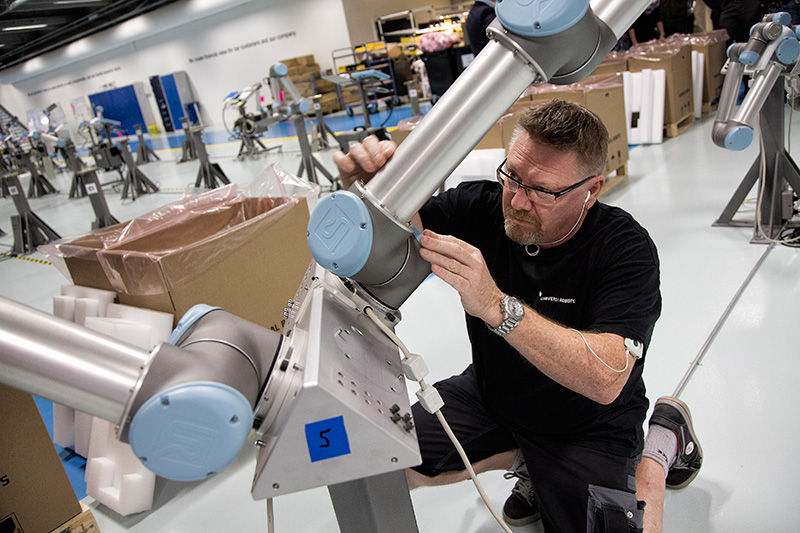 As we have discovered, Odense, Denmark’s third city, is a fascinating and exciting place. The Guardian has called Odense “the most liveable City in Europe”. It boasts 350 miles of bike lanes and champions fair trade. Business-wise, Odense has a vibrant entrepreneurial culture and is home to an array of leaders in the worlds of robots and drone technology – including Universal Robots and Mobile Industrial Robots, a trailblazer of mobile platform systems. The city’s high-tech cluster now numbers over 80 companies amounting to 2,200 jobs. Odense is spending around 4.5 billion euros on the city’s transformation.
As we have discovered, Odense, Denmark’s third city, is a fascinating and exciting place. The Guardian has called Odense “the most liveable City in Europe”. It boasts 350 miles of bike lanes and champions fair trade. Business-wise, Odense has a vibrant entrepreneurial culture and is home to an array of leaders in the worlds of robots and drone technology – including Universal Robots and Mobile Industrial Robots, a trailblazer of mobile platform systems. The city’s high-tech cluster now numbers over 80 companies amounting to 2,200 jobs. Odense is spending around 4.5 billion euros on the city’s transformation.
Thinkers50 Europe will host events featuring the world’s leading management thinkers and highlighting best practices from the Odense region.
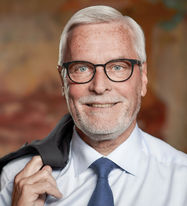 The key realisation of the city of Odense is that economic growth is not simply driven by investments in infrastructure, low tax rates, government grants and the like. Growth can be driven by becoming a hub of great ideas, by being a focus for the exchange of the latest thinking. “It is important to Odense to develop and to strengthen our competitive advantage within the field of robots, IT, drones and welfare technology. To achieve the objective of becoming one of the world leaders in each of these industries we need to constantly focus on innovation and new ideas that will take us to a new level. With Thinkers50 in Odense, we will be able to connect with the best ideas for the future, as well as introducing the best of our ideas to the rest of the world,” says Odense Mayer Anker Boye.
The key realisation of the city of Odense is that economic growth is not simply driven by investments in infrastructure, low tax rates, government grants and the like. Growth can be driven by becoming a hub of great ideas, by being a focus for the exchange of the latest thinking. “It is important to Odense to develop and to strengthen our competitive advantage within the field of robots, IT, drones and welfare technology. To achieve the objective of becoming one of the world leaders in each of these industries we need to constantly focus on innovation and new ideas that will take us to a new level. With Thinkers50 in Odense, we will be able to connect with the best ideas for the future, as well as introducing the best of our ideas to the rest of the world,” says Odense Mayer Anker Boye.
“We cannot compete with Asia in low cost production, but we can compete on other parameters if we are on top of the new ideas and new ways of doing things, like making smarter robots for use in even small scale productions or making drones common property.”
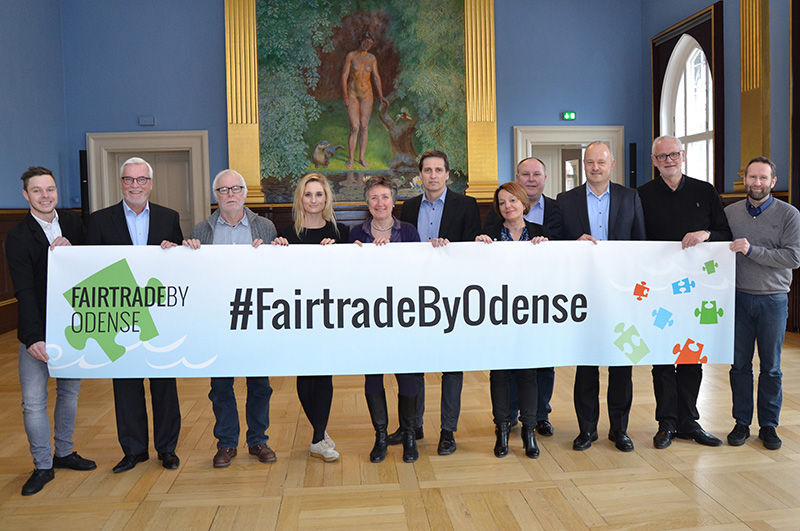
The reality is that the fuel for economic growth is the ideas which form the basis for new technologies and companies. But then, to scale, develop, deliver and succeed in the long term with these ideas requires management and leadership knowledge. For companies, organisations of all kinds, cities, regions and nations, ideas are the route to a better world.
Stuart Crainer and Des Dearlove are the founders of the Thinkers50.

Thinkers50 Limited
The Studio
Highfield Lane
Wargrave RG10 8PZ
United Kingdom

Thinkers50 Limited
The Studio
Highfield Lane
Wargrave RG10 8PZ
United Kingdom

Thinkers50 Limited
The Studio
Highfield Lane
Wargrave RG10 8PZ
United Kingdom
| Cookie | Duration | Description |
|---|---|---|
| LANG | 9 hours | Linkedin set this cookie to set user's preferred language. |
| nsid | session | This cookie is set by the provider PayPal to enable the PayPal payment service in the website. |
| sp_landing | 1 day | The sp_landing is set by Spotify to implement audio content from Spotify on the website and also registers information on user interaction related to the audio content. |
| sp_t | 1 year | The sp_t cookie is set by Spotify to implement audio content from Spotify on the website and also registers information on user interaction related to the audio content. |
| tsrce | 3 days | PayPal sets this cookie to enable the PayPal payment service in the website. |
| x-pp-s | session | PayPal sets this cookie to process payments on the site. |
| __cf_bm | 30 minutes | This cookie, set by Cloudflare, is used to support Cloudflare Bot Management. |
| Cookie | Duration | Description |
|---|---|---|
| l7_az | 30 minutes | This cookie is necessary for the PayPal login-function on the website. |
| Cookie | Duration | Description |
|---|---|---|
| CONSENT | 2 years | YouTube sets this cookie via embedded youtube-videos and registers anonymous statistical data. |
| _ga | 2 years | The _ga cookie, installed by Google Analytics, calculates visitor, session and campaign data and also keeps track of site usage for the site's analytics report. The cookie stores information anonymously and assigns a randomly generated number to recognize unique visitors. |
| _gat_gtag_UA_10408481_1 | 1 minute | Set by Google to distinguish users. |
| _ga_ZP8HQ8RZXS | 2 years | This cookie is installed by Google Analytics. |
| _gid | 1 day | Installed by Google Analytics, _gid cookie stores information on how visitors use a website, while also creating an analytics report of the website's performance. Some of the data that are collected include the number of visitors, their source, and the pages they visit anonymously. |
| Cookie | Duration | Description |
|---|---|---|
| NID | 6 months | NID cookie, set by Google, is used for advertising purposes; to limit the number of times the user sees an ad, to mute unwanted ads, and to measure the effectiveness of ads. |
| test_cookie | 15 minutes | The test_cookie is set by doubleclick.net and is used to determine if the user's browser supports cookies. |
| VISITOR_INFO1_LIVE | 5 months 27 days | A cookie set by YouTube to measure bandwidth that determines whether the user gets the new or old player interface. |
| YSC | session | YSC cookie is set by Youtube and is used to track the views of embedded videos on Youtube pages. |
| yt-remote-connected-devices | never | YouTube sets this cookie to store the video preferences of the user using embedded YouTube video. |
| yt-remote-device-id | never | YouTube sets this cookie to store the video preferences of the user using embedded YouTube video. |
| yt.innertube::nextId | never | This cookie, set by YouTube, registers a unique ID to store data on what videos from YouTube the user has seen. |
| yt.innertube::requests | never | This cookie, set by YouTube, registers a unique ID to store data on what videos from YouTube the user has seen. |
| Cookie | Duration | Description |
|---|---|---|
| DEVICE_INFO | 5 months 27 days | No description |
| loglevel | never | No description available. |
| m | 2 years | No description available. |
Thinkers50 Limited has updated its Privacy Policy on 28 March 2024 with several amendments and additions to the previous version, to fully incorporate to the text information required by current applicable date protection regulation. Processing of the personal data of Thinkers50’s customers, potential customers and other stakeholders has not been changed essentially, but the texts have been clarified and amended to give more detailed information of the processing activities.